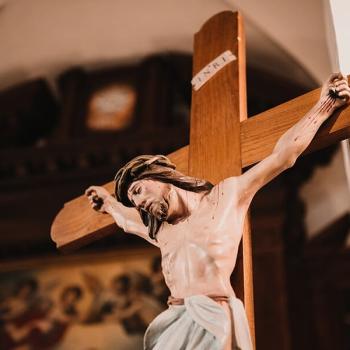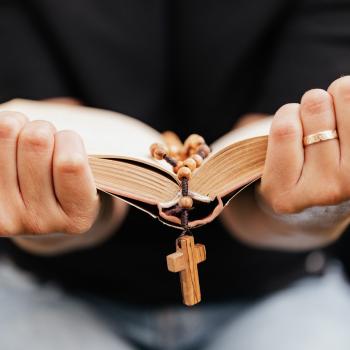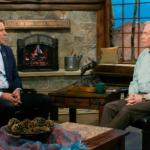I’m a fourth generation Texan. I love the beauty and vastness of my home state. I love the way Texans are instinctively polite and friendly. I love our Tex-Mex and our BBQ. So while most of us in Austin experienced Harvey as heavy rains and a few lost tree limbs, the magnitude of the storm’s devastation has felt very close to home.
In the decade my family and I lived in Houston after college, we were spared living through anything like Harvey. But we have experienced catastrophic loss when our house burned to the ground seven years ago. We know what it feels like to escape with the clothes on our backs (and bare feet). We know the shock of returning to a home that looks nothing like it did the day before. We also know what it’s like to be helped by friends and family and strangers. We know the consolation of having a neighbor cry tears we were too shocked to shed.
And now, family and dear friends are among those impacted by Harvey. I’ve been amazed by the courage they and others touched by the storm have exhibited. And I’ve been deeply encouraged by the outpouring of help and care on their behalf. I loved seeing the long line of trucks towing boats headed into Houston to rescue those trapped by floodwaters. I cried as several live correspondents stopped their reporting to intervene when they noticed people in danger (watch rescues here and here). In all this, I’m grateful for the sheer breadth of grace under pressure I’ve witnessed even as I mourn what those effected by Harvey, and now Irma, have and will endure.
Because this is going to be excruciating. And it’s only the beginning. As the water recedes, the extent of the damage will become clearer. As homes and belongings dry, mold will grow. Some will discover their insurance doesn’t cover something significant. And many never had insurance and will have to do their best to rebuild their lives without it. Countless people will be displaced for months and even years. Some families (like those who live here) will have to relocate simply to access education or other essential services. The scope of it all is overwhelming.
There is much work to be done for and with our neighbors. Right now, a lot of it involves meeting short terms needs of food, clean clothes, and a dry place to sleep. There’s a staggering amount of clean up and rebuilding that will need to happen. Many families will need things like short term financial assistance or legal help. But throughout all that and even long after cities are rebuilt, many will continue to wake up with nightmares of limbs shattering glass or flood waters rising. They’ll be grappling with pain and loss and trauma. And, sooner or later, most will have questions about a God who allows such devastation.
After our fire, we experienced a beautiful outpouring of help and support and love. But as some tried to encourage us, their words became salt in our wounds. This was not their intention. Yet the words still stung and made a devastating situation even harder. So with that in mind, here are a few things I’d encourage you not to say to those reeling from this or any storm.
Please don’t tell them (or anyone else for that matter) what you would have done in their shoes. How you would have evacuated sooner. Or grabbed more mementos. Or whatever. All you’re doing is making yourself feel better by imagining ways you would have escaped the tragedy they’re in. You’re kidding yourself and not doing them any good in the bargain.
I have to be honest—when I heard stories of house fires where people said, ‘there was only time to get out,’ I just didn’t believe them. I always thought to myself that if I were in their shoes I’d have smelled the smoke sooner or had the presence of mind or courage or something to grab photo albums or an irreplaceable quilt or the like. And it was complete bunk. My hands were shaking so badly when I saw the ten foot high orange flames and the black smoke pouring through windows cracked by their heat that I couldn’t dial 911. By the time we made sure all family members were out of harm’s way, I had my dog in one arm and my purse in the other. And no shoes on. Trust me when I say that unless you’ve been through a fire or a tornado or a flood, you don’t know what it’s like and you don’t know what you would do.
Please don’t say ‘it’s just stuff.’ It’s true that possessions matter less than lives. And, yes, things like furniture and electronics and beds can be replaced. But love letters and favorite sweaters and wedding dresses and the family Bible are more than just stuff. Many have lost everything from their stuffed animals to the contents of their junk drawer in this storm. But even those whose homes were damaged but not destroyed are in the position of trying to rescue what wasn’t initially harmed from mold and exposure (or alligators!). Think of every time you’ve had to pack up and move and multiply the chaos by a factor of four and you might have some idea of what these people are going through. And don’t forget that, as is always true, the poor are often disproportionately impacted by devastations like Harvey and have fewer resources to recover. But whether those impacted had much or little, sometimes morning coffee just tastes better in a favorite old mug.
All these years later, my family and I are still working to get mementos that survived in order. We’re still wiping bits of soot off old photos. We’re still getting my daughter’s baby pictures rehung. And some precious things were lost that are simply irreplaceable. Physical objects can evoke memories in powerful—and, I believe, genuinely spiritual—ways. So celebrate those who got rescued or were able to evacuate safely. Be grateful for their lives. And, if they need clean underwear or a toothbrush or a new place to call home, help as you can. But be careful about dismissing the material as if it doesn’t matter.
Please don’t say ‘all things work together for good’ or ‘this is all part of God’s plan.’ It’s not that things won’t get better. It’s not that good things haven’t already come out of this tragedy. Neighbors and first responders have shown up to help in incredible ways. New friendships are being made. Lives have been spared. I believe (and I’ve seen) that God really does give beauty for ashes and loves redeeming things that seem broken beyond repair. But realize that it’s a whole lot easier to be confident there’s a good plan when it’s not your crisis and your loss.
So hold hope for the other side of trauma for people as you walk with them. But don’t forget that they are still in the midst of it and likely will be long after the dust settles. Start with listening to where they are. Try to make space for them to be mad, sad, thankful, afraid, and everywhere in between. Give them time to take in the fullness of what’s happened (and understand that will take months and even years). Know their lives will never be the same. And if they’ve heard flippant references to everything happening for a reason one too many times, you might want to send them one of these.
And for the love of all that’s holy, please don’t imply that the storm is God’s judgment. Don’t dare hint that they have basically brought this upon themselves (as this person and this one did). When people tell themselves they’re speaking truth or asking the hard questions in these kinds of situations, they’re usually really finding another way to tell themselves it could never happen to them. And know this—these kinds of questions sink deep and often do real and lasting violence to the faith of souls precious to God.
God has and continues to move in history for justice and for goodness for all, especially the poor and the overlooked and the oppressed. And I absolutely believe God will use this suffering and loss to foster change and inspire growth on the other side of Harvey. Our choices and actions matter. But don’t forget that God is near the brokenhearted and the poor and the hurting. With the least and the lost. Remember that the Spirit is called Helper, Comforter, Advocate. As we walk with those who are recovering from storms, our invitation, as Romans 12 reminds us, is to weep with those who weep.
Terra McDaniel is a spiritual director and the pastor of New Table, a small contemplative and liturgical community, in Austin, Texas. She received an MDiv with a concentration in spiritual formation from Portland Seminary (formerly George Fox Evangelical Seminary). Terra and her husband Kyle, a managing director at Whitebox Advisors and board member of Allies Against Slavery, live in East Austin with their tiny rescue dog Edie. And she’s thankful that their daughter, son-in-law, and grand-dog are only a ten minute drive away.


















